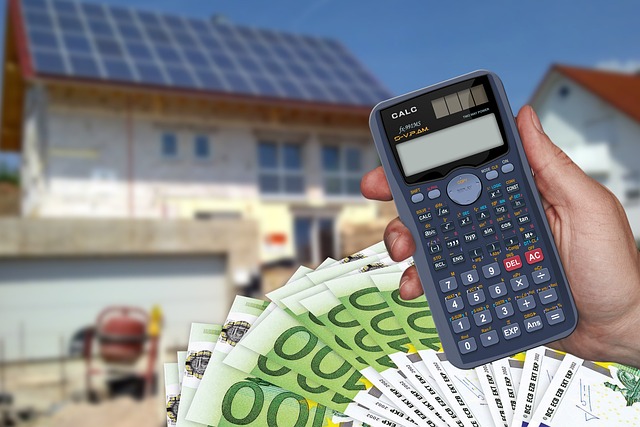Blockchain technology offers a revolutionary solution for real estate transactions by streamlining processes, enhancing security, and reducing costs. This decentralized ledger system automates tasks like identity verification and smart contract enforcement, minimizing errors and fraud risks while speeding up transactions. By eliminating intermediaries, blockchain allows direct interactions between buyers and sellers, simplifying the process and fostering trust in the ecosystem. Its immutable nature ensures transparent, trustworthy records, providing an invaluable audit trail for all stakeholders involved in real estate deals.
Blockchain technology is poised to revolutionize real estate transactions, offering a promising solution for streamlining processes that have long been plagued by inefficiencies. This article delves into the transformative potential of blockchain in real estate, exploring how it can enhance transparency, reduce fraud, and expedite settlement times. Through a step-by-step breakdown, we uncover the mechanisms behind blockchain’s security and automation capabilities, specifically smart contracts, which promise to eliminate intermediaries. While challenges remain, including regulatory hurdles and scalability concerns, industry efforts towards standardization hint at an optimistic future for blockchain integration in real estate.
Revolutionizing Real Estate Transactions: The Promise of Blockchain

Blockchain technology has the potential to revolutionize real estate transactions by streamlining processes and enhancing security. Currently, buying or selling property involves multiple intermediaries like lawyers, notaries, and title companies, leading to lengthy and costly procedures. With blockchain, many of these steps can be automated and securely recorded on a decentralized ledger, reducing the time and expenses associated with traditional real estate deals.
Smart contracts, self-executing agreements stored on the blockchain, can automate tasks such as verifying identity, managing escrow payments, and enforcing contractual terms. This not only speeds up transactions but also minimizes the risk of human error and fraud. Additionally, blockchain’s immutable nature ensures that once a transaction is recorded, it cannot be altered or deleted, providing a transparent and trustworthy record for all parties involved in real estate deals.
– Exploring how blockchain technology can transform the current real estate transaction process.

Blockchain technology has the potential to revolutionize the real estate industry by streamlining and securing transaction processes. Currently, real estate transactions involve multiple intermediaries, such as lawyers, notaries, and title companies, leading to lengthy and complex procedures. Blockchain can simplify this by creating a decentralized, digital ledger that records every step of the process, from property ownership transfers to smart contracts for automated payments. This reduces the need for manual verification and minimizes the risk of fraud or human error.
In a blockchain-enabled real estate transaction, buyers and sellers can interact directly, eliminating the need for intermediaries. Smart contracts would automatically execute terms agreed upon by both parties, ensuring transparency and efficiency. This not only saves time but also reduces costs associated with traditional methods. Additionally, blockchain’s immutable nature guarantees that once a transaction is recorded, it cannot be altered or deleted, providing an unbreakable audit trail that benefits all stakeholders in the real estate ecosystem.
– Discussing benefits like increased transparency, reduced fraud, and faster settlement times.

Blockchain technology is poised to revolutionize various industries, and one sector that stands to gain significantly is Real Estate. By implementing blockchain, transactions in this field can become more transparent and secure. This distributed ledger system ensures that every transaction is recorded and verified, eliminating the potential for fraud or manipulation.
Moreover, blockchain can expedite settlement times, which is particularly beneficial in Real Estate where deals often involve multiple parties and complex processes. With blockchain, transactions are processed faster and more efficiently, reducing the time typically required to complete a deal. This increased speed and transparency can lead to greater trust among participants, fostering a smoother and more straightforward buying or selling process for properties.






